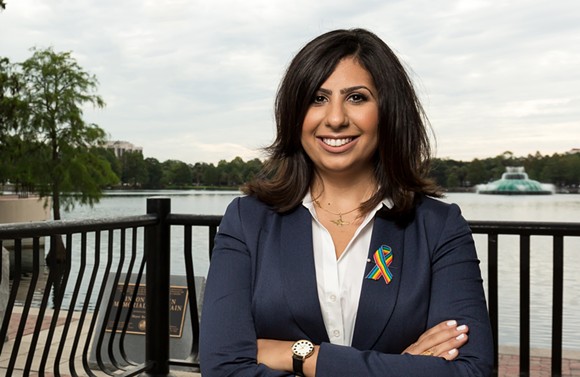
Bill requiring Asian-American history in public school introduced in Florida
The inclusion of Asian American history in public school curriculums have picked up steam over the last year and a half.
Amid a surge of anti-Asian hate crimes over the last year and a half, a pair of new Democratic bills would require public schools in Florida to teach Asian-American history.
The bills, HB 281 and SB 490, were intended to better represent Asian Americans and Pacific Islander in statewide American history curricula. The bills also reflect growing legislative efforts to control specific subjects that teachers must include or avoid in classrooms.
A move in the right direction! In Florida, RFS alum @AnnaForFlorida has introduced a bill that would require public schools to teach about immigrant communities: their civil rights, identity, culture, and contributions.https://t.co/yPsSeCDyM5
— Run for Something (@runforsomething) November 8, 2021
The House bill’s sponsor, Orlando Rep. Anna Eskamani, said the thriving AAPI community in Orange County inspired the proposal.
“It is a growing community that has often been ignored and neglected, and we want to change that,” Eskamani told WUSF News.
HB 281’s prospects for passage in 2022 are unclear. It was directed to the House Education Committee and three subcommittees for consideration. SB 490 was referred to the education and appropriations committee, plus another subcommittee.
The Justice Department documented an alarming rise in anti-Asian sentiment starting in early 2020, including increased incidents of bias, physical attacks and hate crimes against Asian-Americans.
The harassment came to a boiling point in March, when a man in Atlanta, Georgia killed eight people, six of them Asian women, in a series of shootings. The gunman was heading to Florida when he was arrested.
The killings sparked a national wave of support for the AAPI community. Mimi Chan, an activist and martial-arts instructor in Orlando, said it inspired her to act.
Chan, leader of the group Make Us Visible Florida, told WUSF that she didn’t realize all that she was missing from her lessons until she was out of school.
“I don’t even know my history unless I seek it out myself,” she said.
Asian Americans are the fastest-growing segment of our population and are suffering from a rise in hate incidents. That’s often due to ignorance of their history. A new Asian American education bill in Florida aims to change that. @AnnaForFlorida https://t.co/ivqZbLGaub
— Heart Mountain Wyoming Foundation (@HeartMountainWY) November 7, 2021
Chan said her group is working with the Asian American Education Project, a nonprofit organization that develops lesson plans, guides and other resources to assist teachers with AAPI history lessons.
Political debates have raged in Florida over classroom lessons. Gov. Ron DeSantis has been particularly outspoken about his disdain for critical race theory.
Keith Flaugh, the head of a conservative group that opposes critical race theory, also opposes Eskamani’s bill, comparing it to critical race theory, the academic view that holds racism is deeply foundational in U.S. laws and culture.
Eskamani said these political controversies are part of a misinformation campaign, and that educating lawmakers on the distinctions between critical race theory and history will be key moving forward.
“History is foundational. History cannot be changed,” she said.
RELATED CONTENT
A key in the bill’s language is “contributions,” which a 2016 study revealed was missing in Asian-American education.
The study examined the k-12 social studies standards of 10 states to better understand the current scope of Asian-American presence in curricula. It found that two main events, Japanese American internment camps and early Chinese immigration, were consistently present.
There was little to no mention of Korean Americans, Taiwanese Americans, Pakistani Americans, or any other ethnic groups that fall under the umbrella of “Asian-American.”
Sohyun An, the study’s author, wrote that this passive positioning of Asian-Americans in U.S. history helped reinforce the idea of them as “perpetual foreigners.”
“The invisibility of the Asian American experience in the official script of U.S. history sends a message that Asian Americans are not legitimate members of this nation,” An said.
All 10 states’ curricula included the landmark Brown v. Board of Education case, which high school student, Colin Poon, remembered learning about in his seventh-grade civics class.
But Poon never learned about the 1885 Tape v. Hurley case in which a Chinese-American family successfully sued the San Francisco Board of Education to allow their eight-year-old daughter to attend an all-white elementary school.
Since the Summer, Poon has been working with Make Us Visible Florida. He said giving students an accurate view of history should be embraced by both political parties.
“It’s not something that’s just progressive — it’s necessary,” Poon told WUSF.











LEAVE A COMMENT:
Join the discussion! Leave a comment.